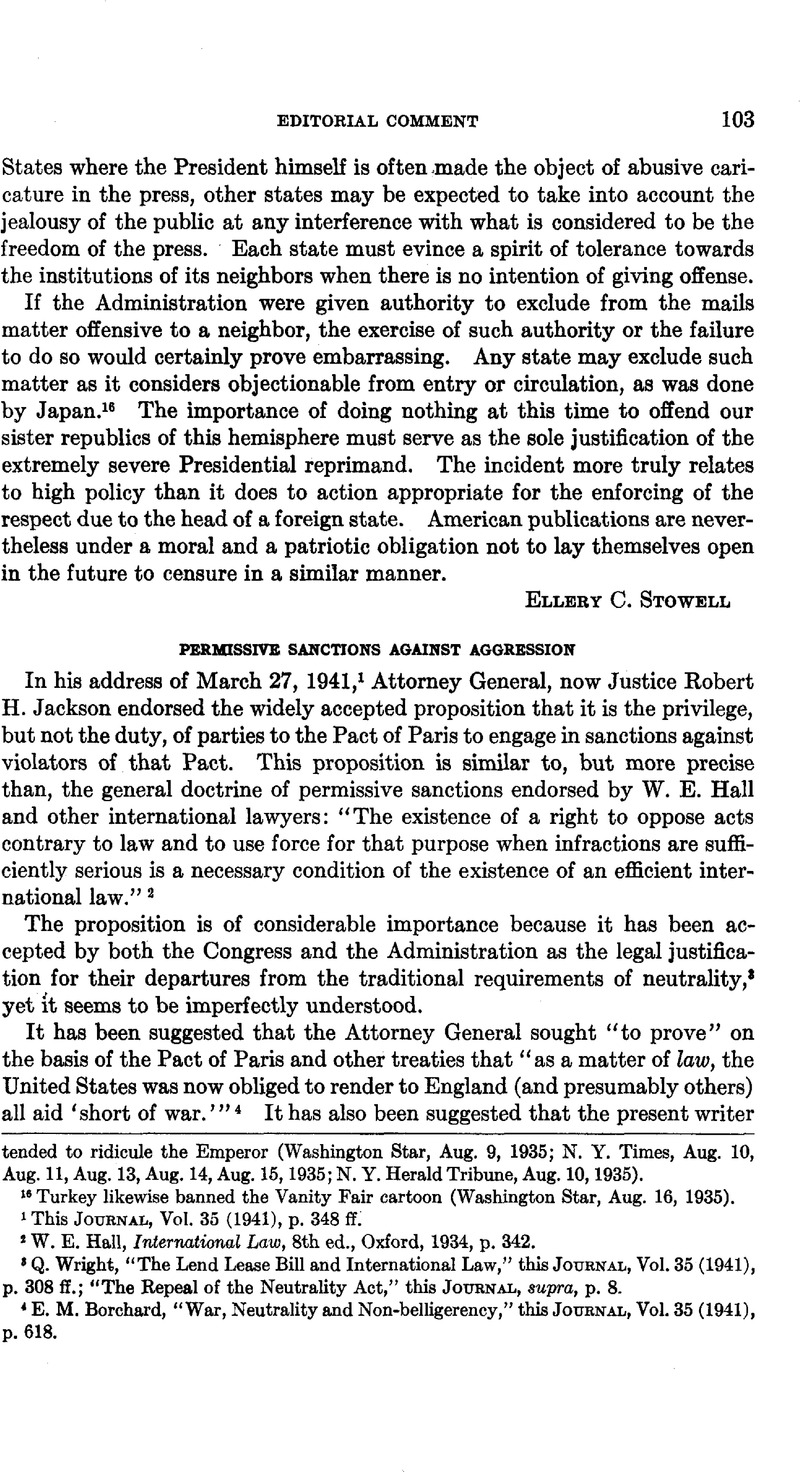No CrossRef data available.
Published online by Cambridge University Press: 12 April 2017

1 This JOURNAL, Vol. 35 (1941), p. 348 ff.
2 W. E. Hall, International Law, 8th ed., Oxford, 1934, p. 342.
3 Q. Wright, "The Lend Lease Bill and International Law," this JOURNAL, Vol. 35 (1941), p. 308 ff.; "The Repeal of the Neutrality Act," this JOURNAL, supra, p. 8.
4 E. M. Borchard, "War, Neutrality and Non-belligerency," this JOURNAL, Vol. 35 (1941), p. 618.
5 E. M. Borchard, "War, Neutrality and Non-belligerency," this JOURNAL, Vol. 35 (1941), p. 618. If the term "legal privilege" had been used alone, no fault could have been found with this statement.
6 Jackson, op. cit., p. 354.
7 "The Lease-Lend Bill," this JOURNAL, Vol. 35 (1941), p. 311. The distinction between permissive and obligatory sanctions is also emphasized in quotations printed by E. M. Borchard and W. P. Lage, Neutrality for the United States, New Haven, 1937, pp. 259-260.
8 77th Cong., 1st Sess., Sen. Rep. No. 45, p. 4.
9 This JOURNAL, Vol. 35 (1941), p. 623.
10 Ibid., p. 624. An interest is not an obligation. The general interest of states in resorts to war was recognized in I Hague Convention, 1899, Arts. 1-3. See Harvard Research in International Law, Draft Convention on Aggression, this JOURNAL, Supp., Vol. 33 (1939), p. 844 ff.
11 This JOURNAL, Vol. 35 (1941), p. 624.
12 Ibid., p. 623. The writer has discussed the legal force of the Kellogg Pact, this JOUIINAL, Vol. 27 (1933), p. 39 ff. The Argentine Anti-War Treaty (1933) obliged the parties not to wage wars of aggression, not to resort to violence to settle territorial questions, not to recognize fruits of aggression, and not to intervene except as required by other collective treaties to which they were parties, but to adopt "in their character of neutrals a common and solidary attitude" for the maintenance of peace, using "political, juridical or economic means authorized by international law." Georg Cohn (Neo-Nevtrality, New York, 1939, pp. 133-134) considers it "in every respect a counterpart to the Kellogg Pact . . . not only in its wording but also in its purpose to act as a link between the sanctions system of the League and the non-member states." See also Philip Jessup, Neutrality, Its History, Economies and Law, New York, 1936, Vol. 4, p. 175 ff.
13 Supra, note 3.
14 Parliamentary Debates, House of Lords, Feb. 20, 1935, quoted in International Law Association, Report of the Thirty-eighth Conference, Budapest, 1934, p. 322.